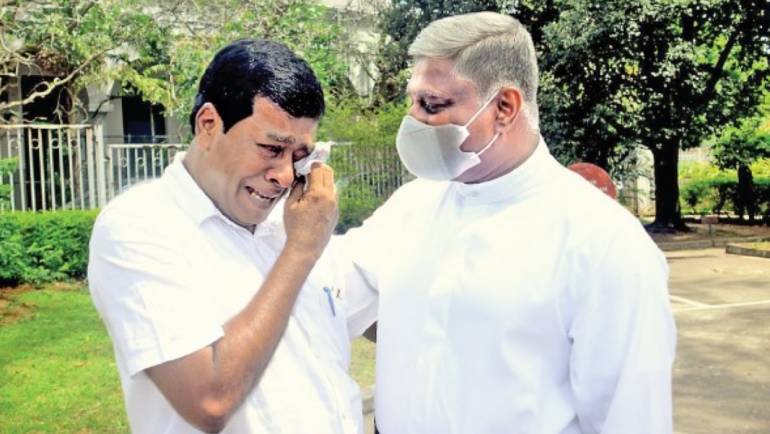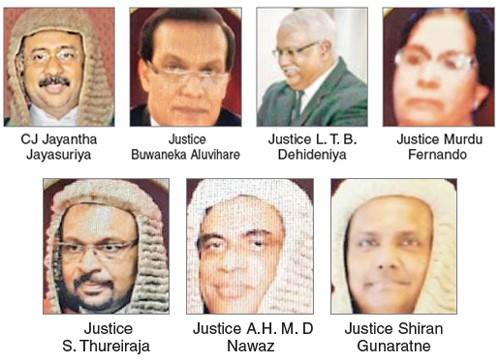Sri Lankan Court orders former President, Police and Intelligence Chiefs to compensate Easter Attack victims

The Sri Lankan Supreme Court, on January 12, ordered former President Maithripala Sirisena and the former Police and Intelligence department heads to pay a total of Sri Lankan rupees 310 million (US$850,000), in compensation for the victims of the Easter Sunday terror attacks on churches in 2019.
The Sri Lankan Supreme Court ruled that Former President Maithripala Sirisena, former Inspector General of Police Pujith Jayasundara, former Chief of State Intelligence Service Nilantha Jayawardena, former Defence Secretary Hemasiri Fernando, former National Intelligence Chief Sisira Mendis have violated the fundamental rights of the victims by failing to act to prevent the Easter Sunday attacks despite receiving intelligence information.
The court ordered former president Sirisena to pay compensation of 100 million Sri Lankan rupees ($274,000), former police chief Pujith Jayasundara and former state intelligence services chief Nilantha Jayawardene SLRs worth 75 million ($206,000) each, former defence secretary Hemasiri Fernando 50 million ($137,000) and former national intelligence service chief Sisira Mendis SLRS. 10 million ($27,000).
Together the responsible are to pay a total of 310 million Sri Lankan rupees, approximately US$850,000, in compensation.
The government was ordered to establish a fund for the victims and the compensation money was ordered to be credited to the said fund within a period of six months.
Payment of compensation must be reported to the Apex Court within six months.
An Islamist extremist group called National Thawheed Jamaat (NTJ), affiliated with ISIS, killed nearly 270 people, including 11 Indians, and injured 500 in a series of devastating explosions that tore through three Catholic churches and as many luxury hotels near Negombo and Batticaloa on April 21, 2019.
A court ruled that top officials did not act on the detailed intelligence information shared by India in order to avert the deadly suicide bombings.T

he seven-judge bench of the Supreme Court made this order while pronouncing a unanimous verdict on 12 Fundamental Rights petitions by persons including the kin of the victims, the Catholic clergy, and the lawyers’ body Bar Association of Sri Lanka, against the then president for his negligence in preventing the attacks that proved fatal for the island nation’s economy primarily dependent on tourism.
Chief Justice Jayantha Jayasuriya stated that the former President and the above respondents had neglected their duties and responsibilities and this has led to the loss of large number of people, including children.
The verdict contains detailed description of the facts regarding each of the respondents, starting with the former president and all the intelligence department heads.
According to Father Sarath Iddamalgoda, one of the petitioners, political leaders think they are above the law, but the judges reminded them that nothing defies the law.
Human rights activist Brito Fernando called the court decision "a huge victory" for those fighting for their rights, including the Easter Sunday victims.
Father Jude Chrisantha, the archdiocesan director of mass communication in Colombo, hopes the judgment will encourage officials to take responsibility for their actions.
Asserting that the tragedy was "not solely the work of radicals, but a big political conspiracy," Cardinal Malcolm Ranjith of Colombo has brought up the subject frequently both within the country and at international forums, such as the Vatican and the United Nations Human Rights Council.
Radio Veritas Asia (RVA), a media platform of the Catholic Church, aims to share Christ. RVA started in 1969 as a continental Catholic radio station to serve Asian countries in their respective local language, thus earning the tag “the Voice of Asian Christianity.” Responding to the emerging context, RVA embraced media platforms to connect with the global Asian audience via its 21 language websites and various social media platforms.














